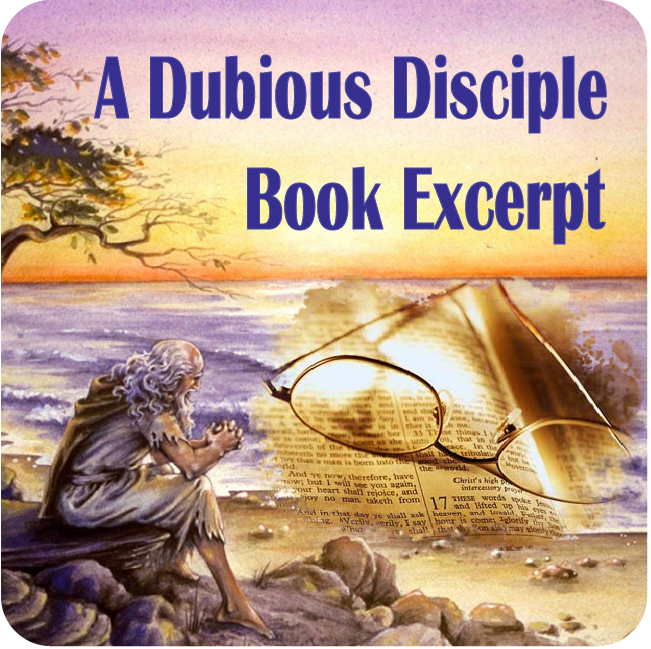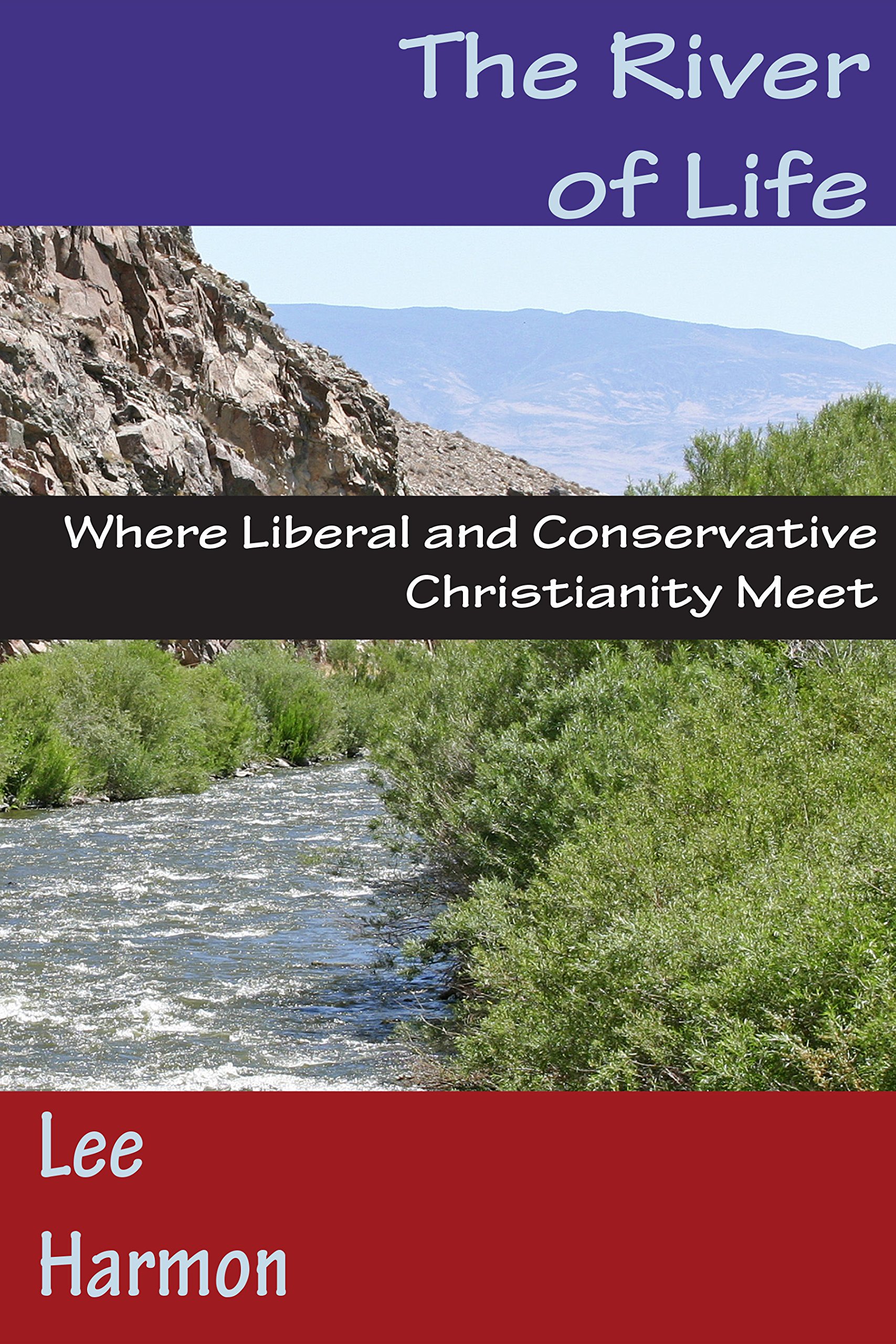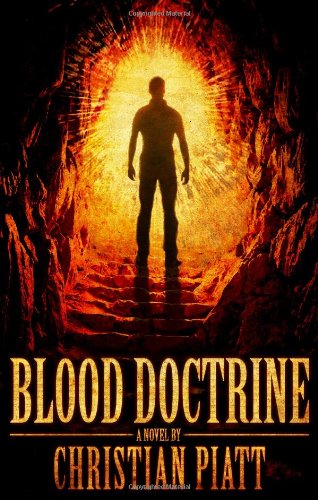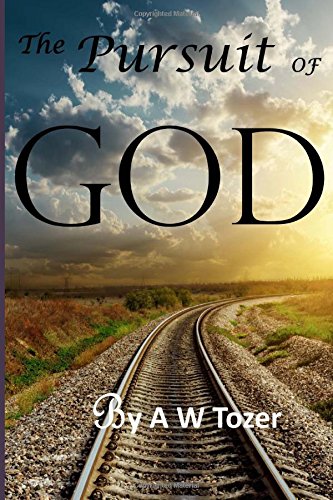Book Excerpt: The River of Life
In my mind, the nature of Christ’s second coming is inextricably intertwined with the nature of his resurrection. Resurrection is key, as every Christian agrees. If there were no resurrection, there would be no Christianity.
So what is the nature of Jesus’ resurrection? Did he simply disappear from this earth, never to be seen again, as the Gospel of Mark reports? Did he rise bodily alongside many others as part of a general resurrection, and promise to remain “until the end of the age,” as many readers understand the Gospel of Matthew? Perhaps Matthew meant to depict the resurrected Jesus (and all the rest of the resurrected saints that day) as spiritual, not physical? Sometime when you’re in a contemplative mood, read the final chapter of Matthew. Jesus’ resurrection seems presented as physical, since the disciples “hold Jesus by his feet.” Yet the final verse of Matthew depicts a spiritual Jesus who will remain with us through the age of God’s rule. Try therefore to discern the point where Jesus slides from a physical to a spiritual body. Then try to imagine whatever happened to all the saints who resurrected that day and appeared “to many” in Jerusalem, if indeed Matthew meant to imply a physical resurrection. Did they crawl back in their graves? Who sealed up the tombs again?
Or do we trust Luke’s report, where Jesus climbs out of the tomb, presents himself in a physical body, remains on earth 40 days, and then ascends into heaven?
Should we instead dig clear back to our first New Testament writer? Paul saw the resurrected Jesus not in a physical body but as a light from heaven, and considered his Jesus-sighting to be as authentic as any other. When he writes of those who saw the resurrected Jesus, he makes no distinction between how Jesus appeared to him and to others. “Am I not an apostle?” Paul writes indignantly in that same letter to the Corinthians, insisting that he is as qualified to be an apostle as any other person who saw the risen Jesus. “Have I not seen Jesus our Lord?”
Were all of the Jesus sightings visionary experiences, then, like a light from heaven?
–The River of Life, Energion Publications, 2014 by Lee Harmon

Matthew 21:19, God Hates Figs
And seeing a fig tree by the road, He came to it and found nothing on it but leaves, and said to it, “Let no fruit grow on you ever again.” Immediately the fig tree withered away.
//Proclaiming that God hates figs, members of the Bestworld Baptist Church waved homemade posters in the air yesterday and quoted Matthew 21:19. Bystanders tried to soften the message, insisting that God doesn’t hate the tree, he hates its sin. But Pastor Phred Felps argued convincingly that the entire tree was destroyed. The Pastor quoted many other scriptures to make his point:
He struck their vines also, and their fig trees, And splintered the trees of their territory. –Psalms 105:33
The other basket had very bad figs which could not be eaten, they were so bad. –Jeremiah 24:2
Thus says the LORD of hosts: Behold, I will send on them the sword, the famine, and the pestilence, and will make them like rotten figs that cannot be eaten, they are so bad. –Jeremiah 29:17
And I will destroy her vines and her fig trees –Hosea 2:12
He has laid waste My vine, And ruined My fig tree –Joel 1:7

Book review: Blood Doctrine
by Christian Piatt
★★★★
Piatt spins two parallel tales: the major story in the twenty-first century, the minor one in the first century. They dovetail by the end of the book. The first story is a page-turner; the second, not so much. As a scholar of first-century Palestinian history, you’d think that would be the portion of the book that would most interest me, but I found it to be rather unnecessary.
That minor complaint aside, the primary tale is captivating! A teenage boy who grew up as an orphan recognizes that he is different, that he seems to possess strange healing powers, but is hesitant to discuss it with others. When a journalist on the trail of an archaeological mystery comes into his life, he learns that his powers are no accident … they stem from the time of Jesus … and that powerful people are watching him closely, anxiously trying to hurry the Second Coming of Christ.
With likeable characters and multiple plot twists, this would seem to appeal best to young adults. But with the pointed subject matter and the first-century side story, perhaps it will find its niche instead among free-thinking adult readers.
Samizdat Creative, © 2014, 183 pages
ISBN: 978-938633-55-3

Psalm 23:4, The Valley of Death
Yea, though I walk through the valley of the shadow of death, I will fear no evil: for thou art with me; thy rod and thy staff they comfort me.
//Today’s verse comes from the most beloved psalm in the Bible. It begins The Lord is my shepherd, and commences to tell of the rest and safety of the sheep in the shepherd’s care.
It turns out that there actually is a “valley of the shadow of death” in Palestine, and every shepherd knows of it. It’s just south of the road from Jerusalem to Jericho. Kenneth Bailey in The Good Shepherd, page 47, quotes Reverend M. P. Krikorian:
I had the good fortune of having at least a passing view of this valley. … It is a very narrow defile through a mountain range where the water often foams and roars, torn by jagged rocks. … The path plunges downward … into a deep and narrow gorge of sheer precipices overhung by frowning Sphinx-like battlements of rocks, which almost touch overhead. Its side walls rise like the stone walls of a great cathedral. .. The valley is about five miles long, yet it is not more than twelve feet at the widest section of the base. …. The actual path, on the solid rock, is so narrow that in places the sheep can hardly turn around in case of danger. … In places gullies seven and eight feet have been washed.
A descriptive image, isn’t it?

Book review: The Pursuit of God
by A. W. Tozer
★★★★
“O taste and see that the Lord is good.”
This book was given to me by a friend, and I was immediately drawn to the title. I feel like much of my life is a pursuit of God. But the theme wasn’t quite what I expected.
The author assumes that, in our pursuit of God, we have already found him, and discovered him to be a person–a person who thinks, wills, enjoys, feels, loves, desires and suffers like all of us. But having found God, we are in danger of falling into the trap of thinking we need no longer seek him.
Tozer points out that for millions of Christians, God is no more real than he is to the non-Christian. They do not know him personally, but go through life trying to love an ideal. The book reads like a sermon trying to bring us back to Jesus.
So while there were many parts that I could no longer connect with, having outgrown a conservative belief system, it nevertheless appealed to me. It appealed because it put me effortlessly back in a comfort zone. I felt like I was back in church. Tozer’s “sermon” is mesmerizing, hypnotizing, intoxicating, just as good religion should be. Or, if you’re not so fond of church, it will lull you to sleep.
Create Space, © 2013, 76 pages
ISBN: 978-1484076439

Luke 10:26, Loving Both Neighbor and Enemy
He said unto him, What is written in the law? how readest thou?
//In her latest book Short Stories By Jesus, Amy Jill-Levine pointed out something interesting, and I’m still trying to decide if it’s relevant. She was discussing the parable of the Good Samaritan. A lawyer came to Jesus asking who his neighbor is. The Law commands that he love his neighbor, so he wants to know who he is supposed to love.
Jesus asks the lawyer what he reads in the Law. “How readest thou?” Then he launches into a story of how a Samaritan had compassion for his enemy, a Jew.
It turns out that in Hebrew, the words “neighbor” and “evil” share the same consonants, and since biblical Hebrew is written without vowels, the two words are written identically. “How readest thou?” Jesus asks. Amy wonders if Jesus isn’t asking the lawyer, “Are you able to see in your Torah that your enemy is also your neighbor?”

Book review: God Needs Salvation
by Hugh Rock
★★★★★
Hugh Rock wants to save God. It’s time for a new vision of God, but Rock seeks a 21st-century God without throwing out the old one. It is imperative, he insists, that we retain a sympathetic connection with the God of previous generations.
Intelligent and pointed, you’re going to feel suckerpunched somewhere in the first half of the book, as Rock quietly dismantles the House of Christians with their community god, the House of Platonists with their nature god, the Christian Mystics who try to speak Platonism using the language of Christ, and even the Jesusologists who turn the historical Jesus into a Humanist religion. Not even liberal theology, with its call for religious convergence by leaning heavily on panentheism, provides the answer. Rock knows he risks the ire of many by being critical of genuine interfaith motivations, but my own liberal community gets the boot too in this purge.
So what’s left? Rock insists that we are still inherently religious, but does God still exist in today’s secular culture? The answer may lie buried in our own humanity. Those theologians who have moved already in this direction see God not as a metaphysical reality but in the conditions of human relationships. They have discovered that this shift to sociology is possible without abandoning theology, keeping a proper reverence for our religious heritage.
This is a well-researched, thought-provoking book that’s very worthy of the time you’ll invest. While Rock sometimes seems out of touch with the fundamentalistic mindset that still pervades much of America (Rock resides in the UK), he does provide a healthy vision for the future that we can embrace.
Christian Alternative Books, © 2014, 458 pages
ISBN: 978-1-78279-399-1

Luke 15:28, Who is the Lost Son?
Therefore his father came out and pleaded with him.
//In the parable of the lost coin, a woman diligently sweeps the floor of her home until she finds the coin.
In the parable of the lost sheep, the shepherd searches until he finds the sheep.
So in the parable of the prodigal son, who is the lost son? It’s the prodigal, right? Maybe. Maybe not.
Note that the father never goes in search of the prodigal. He finds his way back home on his own. He’s hardly lost. However, there’s another son in the story. You know the story: This son is jealous of his brother and won’t join in the party when he hears his brother has come home.
So what happens next? Like the woman with a lost coin, like the shepherd with a lost sheep, a father now goes in search of his son. But it’s the jealous son, not the prodigal. The father finds him and pleads with him to rejoin the family.
So which of the two is the lost son?

Leviticus 19:33-34, Resident Aliens
And if a stranger dwells with you in your land, you shall not mistreat him. The stranger who dwells among you shall be to you as one born among you, and you shall love him as yourself; for you were strangers in the land of Egypt: I am the LORD your God.
//This isn’t a political blog. I don’t like to take a strong stance on political issues, and I certainly don’t pretend to have answers. I’m just not that informed on many of the tough issues our nation is facing.
One of these tough issues is the proper stance on immigration reform. How are we to feel about resident aliens in America? What rights are appropriate? What about the children?
I honestly don’t know. However, I do hope those who claim to embrace Christian values are reading what the Bible says. God’s law to Israel is pretty pointed, as you see in today’s verse, and when Ezekiel puts his finger in the pie, it becomes even more direct:
“It shall be that you will divide it by lot as an inheritance for yourselves, and for the strangers who dwell among you and who bear children among you. They shall be to you as native-born among the children of Israel; they shall have an inheritance with you among the tribes of Israel. And it shall be that in whatever tribe the stranger dwells, there you shall give him his inheritance,” says the Lord GOD. –Ezekiel 27:22-23

Book review: The Divine Magician
by Peter Rollins
★★★★★
Are you courageous enough to subject your belief in God to psychoanalysis? I dare you to open the cover on this one.
In The Divine Magician, Rollins compares the Gospel to a magic trick in which the magician presents an item, makes it disappear, and then makes it reappear. These three steps are called the Pledge, the Turn and the Prestige.
100 years or so before Christ, Roman general Pompeius Magnus stepped behind the temple curtain in Jerusalem and was surprised to find “the sanctuary empty and the Holy of Holies untenanted.” Religion offers us a sacred object, the fulfillment of every desire, but Rollins invites us to look behind the curtain, exposing its traumatic absence. There is nothing there!
But this is not the end of the journey. We don’t need to be saved by the sacred object but from it. Being freed from religious structure, we are prepared to rebuild in a more positive way, and God reappears.
This book will make you look inward, and that’s not easy. Thankfully, it’s also a fun read.
Howard Books, © 2015, 208 pages
ISBN: 978-1-4516-0904-2



















 354 Circles
354 Circles
 603 Goodreads Friends & Fans
603 Goodreads Friends & Fans

 Hello! I'm an author, historical Jesus scholar, book reviewer, and liberal Christian, which means I appreciate and attempt to exercise the humanitarian teachings of Jesus without getting hung up on any particular supernatural or religious beliefs.
The Bible is a magnificent book that has inspired and spiritually fed generations for thousands of years, and each new century seems to bring a deeper understanding of life’s purpose. This is true of not only Christianity; through the years, our age-old religions are slowly transforming from superstitious rituals into humanitarian philosophies. In short, we are growing up, and I am thrilled to be riding the wave.
I avidly read all thought-provoking religion titles. New authors: I'd love to read and review your book!
Hello! I'm an author, historical Jesus scholar, book reviewer, and liberal Christian, which means I appreciate and attempt to exercise the humanitarian teachings of Jesus without getting hung up on any particular supernatural or religious beliefs.
The Bible is a magnificent book that has inspired and spiritually fed generations for thousands of years, and each new century seems to bring a deeper understanding of life’s purpose. This is true of not only Christianity; through the years, our age-old religions are slowly transforming from superstitious rituals into humanitarian philosophies. In short, we are growing up, and I am thrilled to be riding the wave.
I avidly read all thought-provoking religion titles. New authors: I'd love to read and review your book!
 Hi! While Lee writes the articles and reviews the books, I edit, organize, and maintain the blog. The views expressed here are Lee's but I'm his biggest supporter! :-)
Hi! While Lee writes the articles and reviews the books, I edit, organize, and maintain the blog. The views expressed here are Lee's but I'm his biggest supporter! :-)
Connect With Me!